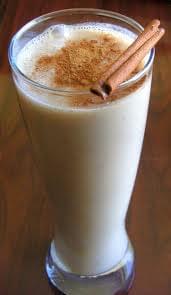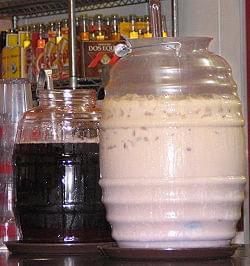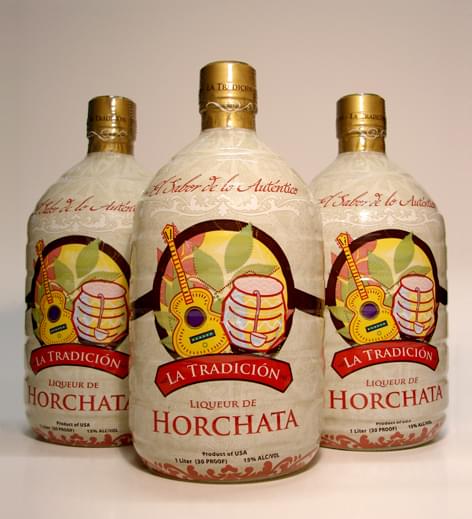I've heard about it, but… 6. – What is horchata?
Horchata is the name of several kinds of traditional beverages, made of ground almonds, sesame seeds, rice, barley, or tigernuts (chufas).
In Spain, it usually refers to orxata de xufa (horchata de chufa), made from tigernuts, water, and sugar.
Originally from Valencia, the idea of making horchata from tigernuts comes from the period of Muslim presence in Valencia (from the eighth to thirteenth centuries).
 It has a regulating council to ensure the quality of the product and the villages where it can come from, with the Denomination of Origin. The village of Alboraia is well known for the quality of its horchata.
It has a regulating council to ensure the quality of the product and the villages where it can come from, with the Denomination of Origin. The village of Alboraia is well known for the quality of its horchata.
It is served ice cold as a natural refreshment in the summer. Tigernut horchata is also used in place of milk by the lactose intolerant.
Horchata varies in taste across Latin America. Although the drinks may share the same name, the flavor of each is unique to its country of origin.
 While in some countries the drink is usually tan and “milky”, some recipes call for milk, and others do not. Other ingredients often include sugar, cinnamon, and vanilla. Though horchata was once typically homemade, it is now available in both ready-to-drink (shelf-stable or refrigerated) and powdered form in grocery stores. Horchata, together with tamarindo and jamaica, are the three typical drink flavors of Mexican agua frescas.
While in some countries the drink is usually tan and “milky”, some recipes call for milk, and others do not. Other ingredients often include sugar, cinnamon, and vanilla. Though horchata was once typically homemade, it is now available in both ready-to-drink (shelf-stable or refrigerated) and powdered form in grocery stores. Horchata, together with tamarindo and jamaica, are the three typical drink flavors of Mexican agua frescas.
In Mexico and Guatemala, horchata is made of rice, sometimes with vanilla and always with cinnamon.
The horchata found in El Salvador is primarily made from morro seeds, not rice. Other common ingredients include ground cocoa, cinnamon, sesame seeds, nutmeg, tigernuts and vanilla. Other nuts that may also be used include peanuts, almonds and cashews. Because of these ingredients, the horchata is usually strained before serving.
Related news
Related news
(HU) A nap mondása
🎧 Hallgasd a cikket: Lejátszás Szünet Folytatás Leállítás Nyelv: Auto…
Read more >KSH: The volume of exports of food, beverages and tobacco increased by 6.8 percent, while imports increased by 9.8 percent
🎧 Hallgasd a cikket: Lejátszás Szünet Folytatás Leállítás Nyelv: Auto…
Read more >SZÉP card reached its peak in December
🎧 Hallgasd a cikket: Lejátszás Szünet Folytatás Leállítás Nyelv: Auto…
Read more >







